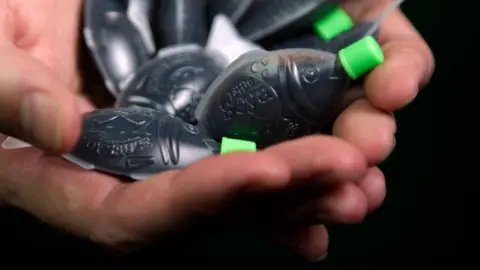The latest United Nations negotiations aimed at establishing a comprehensive treaty to combat plastic pollution concluded without consensus, highlighting the stark divisions among participating nations. The talks, which extended late into the night and marked their sixth session within three years, ultimately failed to bridge the divide between approximately 100 countries supporting restrictions on plastic production and oil-rich states focused on enhancing recycling efforts.
Cuba's delegation lamented the missed chance for a landmark agreement, emphasizing the need to persevere through the ongoing challenges. UK Marine Minister Emma Hardy expressed significant disappointment, labeling plastic pollution a pressing global issue that no single nation can tackle independently. Hardy reaffirmed the UK's commitment to collaborating both domestically and internationally to advance environmental protections and facilitate circular economic practices.
Initiated in 2022, the discussions were propelled by growing scientific concern regarding the human health and environmental threats posed by plastic waste. Researchers have sounded alarms over the toxic substances embedded within plastics that can leach into ecosystems and enter human bodies. Notably, microplastics have infiltrated soils, bodies of water, air, and even human organs.
The negotiations, initially set with a deadline for December of the previous year, have now fallen behind schedule following this recent collapse. Palau, representing island nations, voiced frustration over their continuous return home with insufficient progress to address the environmental crises disproportionately affecting them.
The crux of the debate centers on whether the treaty should address plastic pollution at its source—by limiting production—or whether it should concentrate on improving recycling methods. Major oil-producing countries, including Saudi Arabia and Russia, maintain that boosting recycling infrastructure is essential to addressing the issue, viewing plastics as integral to their economic future as the world transitions from fossil fuels.
Industry representatives, like Ross Eisenberg of America's Plastic Makers, argue against curbing production, warning that alternative materials could lead to adverse outcomes. However, critics of this stance point out that the current global recycling rate remains alarmingly low, around 10%, with little hope for significant improvement.
To counter the situation, about 100 nations—including the UK and EU—favor production limits and standardized design principles that facilitate recycling, such as using uniform bottle colors. This initiative has garnered the support of major corporations like Nestlé and Unilever, which advocate for an extended producer responsibility scheme aimed at funding recycling initiatives.
Though a revised text presented by chair Luis Vayas of Ecuador aimed to address some member concerns, it fell short of advocating for production cuts. While the EU described this outcome as a solid foundation for future talks, oil-dependent states expressed dissatisfaction with the negotiation process.
Environmental advocates decried the failure to strike a deal, accusing oil states of prioritizing profit over ecological health. Graham Forbes from Greenpeace highlighted the urgency for global cooperation to confront fossil fuel interests directly, asserting that the multitude of government supports for a robust agreement must not be undermined by a few key players' obstructionism.
The chair announced plans to reconvene the discussions at a later date, remaining hopeful for breakthrough resolutions in addressing the intricate challenge of plastic pollution.




















